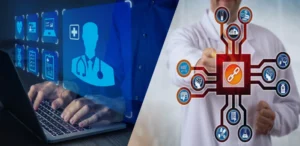
WHAT IS INTEROPERABILITY IN HEALTHCARE?
What Is Interoperability In Healthcare? Electronic health records are considered to be a great advancement in the healthcare field. Early in 1965, they were used
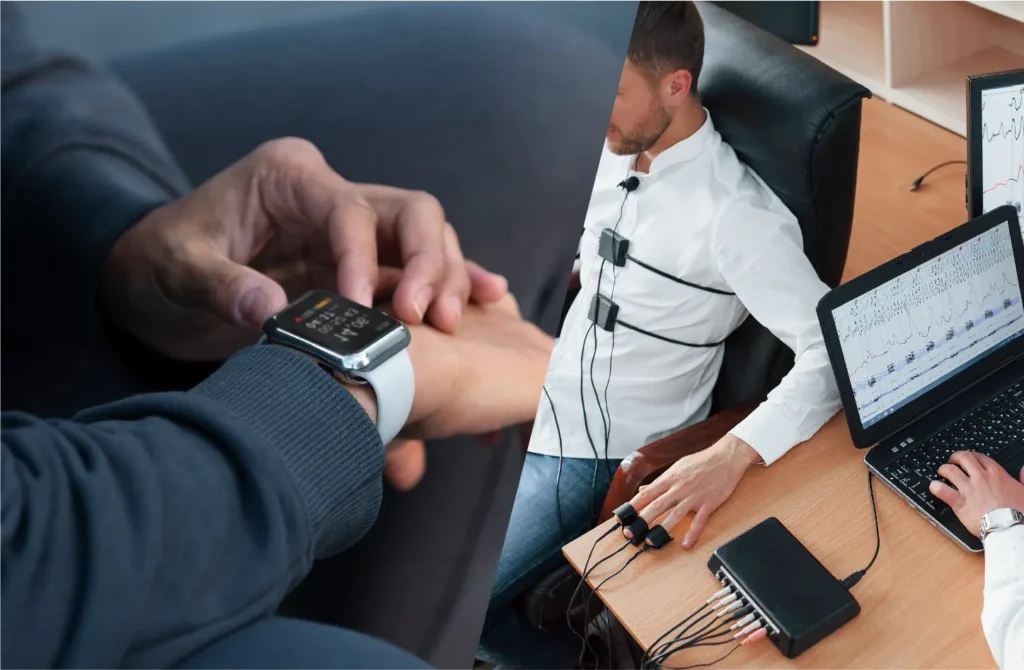
After the pandemic, the healthcare challenge is growing worldwide. People are getting more and more concerned about their health. Even before the pandemic, there was a need of a system to monitor patients’ health remotely, but during pandemic, it has become a necessity.
The need for technology is more emphasized than ever to provide better and efficient healthcare services. To overcome this challenge, the health monitoring system has emerged as a revolutionary solution for the healthcare industry. In this blog, we will dis
A health monitoring system, also known as remote patient monitoring (RPM) system, is a technology-based solution that allows monitoring patients’ health remotely. It collects and analyzes data from patients using various devices such as sensors, wearables, or mobile applications. The data is then transmitted to healthcare providers in real-time, enabling them to make informed decisions and provide timely interventions.
Health monitoring systems encompass a wide range of tools, devices, and platforms that track, manage, and analyze health-related data for individuals or populations. These systems can be broadly categorized based on their application, technology, or purpose. Here’s an overview of various types of health monitoring systems:
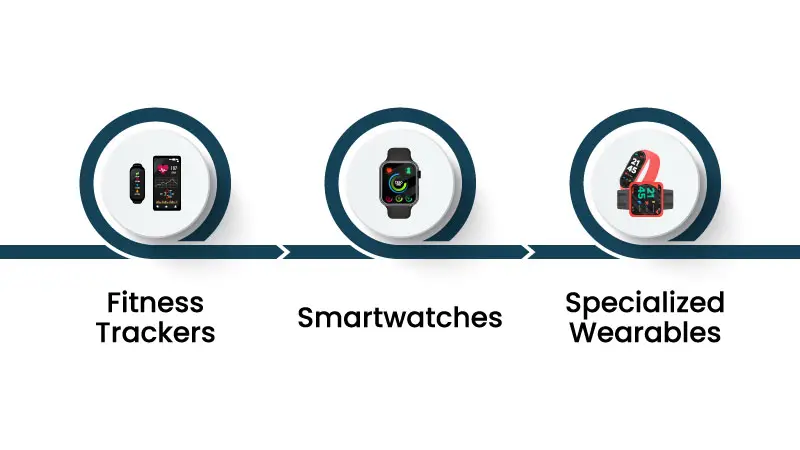
Fitness Trackers: Devices like Fitbit, Garmin, or Mi Band track steps, distance, calories burned, sleep patterns, and heart rate.
Smartwatches: Apple Watch, Samsung Galaxy Watch, etc., which offer health and fitness tracking features alongside other smart functionalities.
Specialized Wearables: Devices designed for specific metrics like glucose monitors for diabetics or wearable ECG monitors.
Allows healthcare providers to monitor patients outside traditional clinical settings, such as in the home or in a remote area.
It can include monitors for heart rate, blood pressure, oxygen levels, and other vital signs.
Ingestible sensors: Pills that transmit data from inside the gastrointestinal tract.
Implantable devices: Devices like pacemakers or continuous glucose monitors that are placed inside the body.
Blood pressure monitors, glucose monitors, and weight scales that can be used at home and sometimes connected to the cloud for data sharing with healthcare providers.
Blood pressure monitors, glucose monitors, and weight scales that can be used at home and sometimes connected to the cloud for data sharing with healthcare providers.
Used in hospital settings.
Platforms designed to assist with the long-term management of chronic diseases like diabetes, hypertension, and COPD.
The rapid growth of technology and the increasing interest in personal health have led to a proliferation of health monitoring systems. It’s essential for users to ensure any system or device they use is accurate, reliable, and meets regulatory standards, especially if making health decisions based on the data.
The health monitoring system provides numerous benefits to both patients and healthcare providers. It enables healthcare providers to remotely monitor the vital signs of a patient, providing early detection of potential health issues. This helps in preventing serious complications and reducing hospital readmissions.
For patients, the health monitoring system offers convenience and peace of mind. They can easily keep track of their health status without having to visit a healthcare facility regularly. It also allows them to actively participate in their own care, which can lead to better health outcomes.
The use of health monitoring systems has revolutionized the healthcare industry in multiple ways. It has made healthcare more accessible, especially for those living in rural or remote areas with limited access to healthcare facilities. With the increasing adoption of telemedicine, patients can receive quality healthcare services from the comfort of their homes.
Moreover, health monitoring systems have also improved the efficiency and effectiveness of healthcare delivery. The real-time data provided by these systems enables healthcare providers to make accurate and timely diagnoses, resulting in better treatment plans and outcomes.
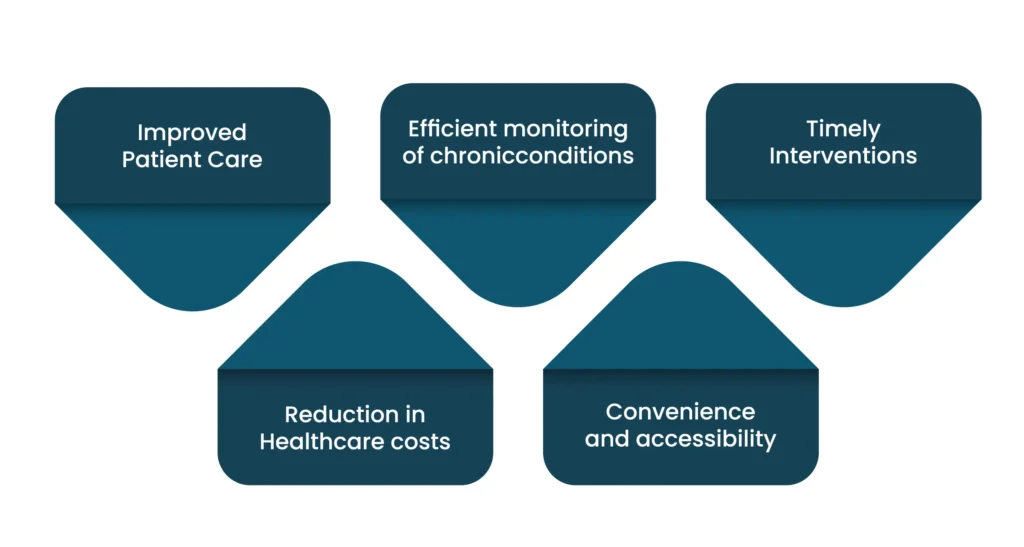
The health monitoring system is constantly evolving with the advancements in technology. With the rise of wearable devices, smart sensors, and telemedicine services, the system is becoming more effective and efficient in providing remote healthcare solutions. In the future, it has the potential to revolutionize chronic disease management, emergency care, and even surgical procedures. According to research carried out by markets and markets the health monitoring market will be double by 2025 from 1.5 billion dollars to 2.9 Billion.
The landscape of health monitoring is ever-evolving, with new challenges and requirements emerging continually. Global CCM isn’t just about software meeting the current demands. We are relentlessly focused on innovating and envisioning the future needs of health monitoring.
By investing in research and development and fostering partnerships with leading healthcare professionals, they aim to remain at the cutting edge, offering software solutions that aren’t just relevant for today but are also prepared for the healthcare challenges of tomorrow.
In conclusion, the health monitoring system is a game-changer in the healthcare industry. It offers numerous benefits for both patients and healthcare providers, making it an essential tool in improving patient care and reducing healthcare costs.
With advancements in technology, the system is constantly evolving and has the potential to revolutionize how we manage chronic diseases and emergency care. As we move towards a more connected world, it is crucial to have global CCM software solutions that can meet the ever-changing demands of health monitoring and provide effective and efficient healthcare services. So, let’s embrace this technology-driven approach towards healthcare and create a healthier future for all.

What Is Interoperability In Healthcare? Electronic health records are considered to be a great advancement in the healthcare field. Early in 1965, they were used
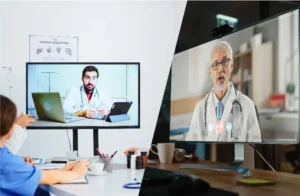
5 Surprising Benefits of Telehealth Video Conferencing Remember the days of packed waiting rooms and overflowing schedules? The landscape of healthcare is evolving rapidly, and
Talk to an Expert Now